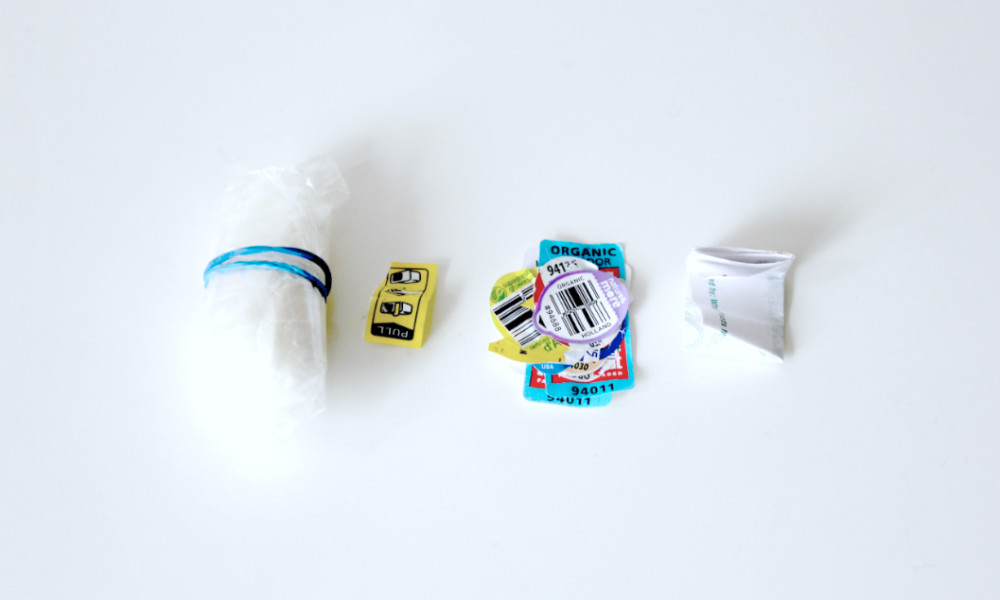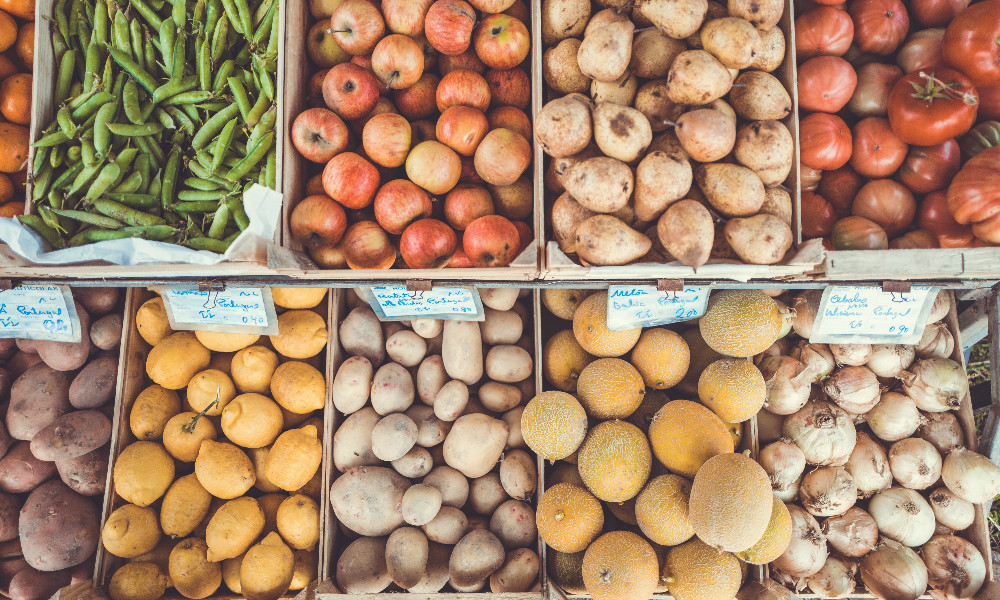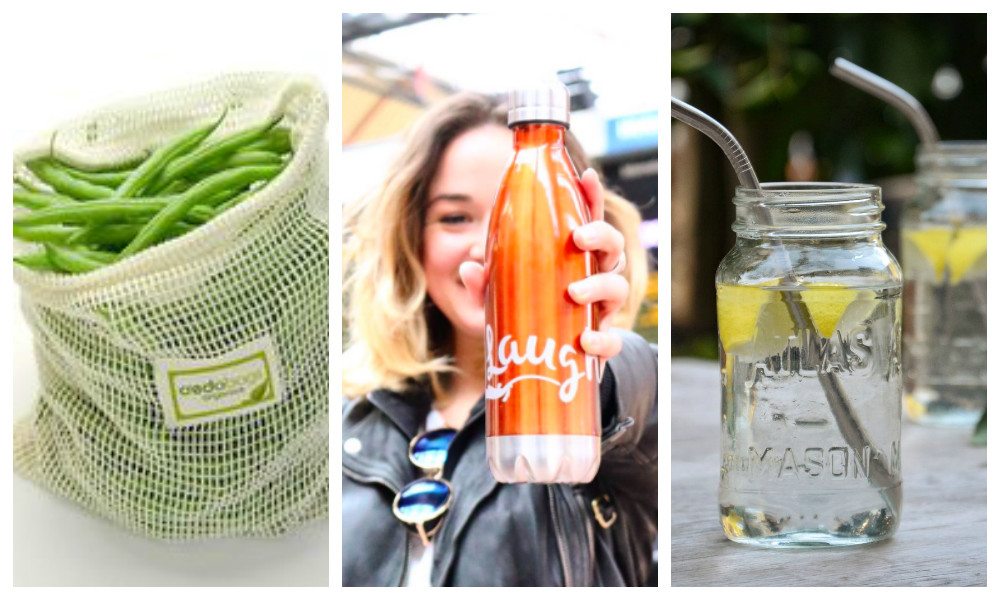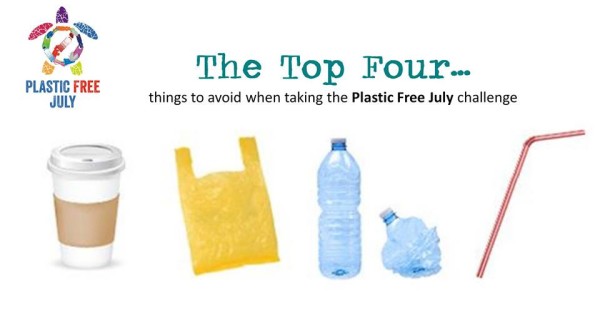Can you cut 1 Tonne of carbon pollution out of your life?
Take the challengeJarring is a pretty new concept, in short, it basically means collecting the rubbish you can’t recycle into glass jars (all that pesky plastic).
This is a guest blog from our friends at Farm to Face
Ever since we were asked to be ambassadors for The Sustainable Table's 'grexy' campaign back in April we've become huge fangirls of big-time sustainability genius, and fellow ambassador, Erin Rhoads aka The Rogue Ginger . Erin follows a wave of other visionaries opting for a 'zero waste' lifestyle including (maybe most famous) Lauren Singer (from Trash is for Tossers) and Merren Tait, advocate of Plastic Free July, a campaign we'll be joining ourselves this July (and we'd love it if you tagged along)!
During the grexy campaign I started to do my own 'jarring' to give me a taste of what it was like, and even though it was only for a couple of months (I started a month early) it gave me a great insight into the impact I'm having. During the month that clear glass jar became my nemesis, I absolutely hated having to open it to put my rubbish in, it was bordering on shameful because I knew I'd have to write this article about my rubbish and I'd have to justify my waste. In a way this was ironic, we're rarely forced to face our biggest environmental issues daily and here I was facing my own smaller impact head on, and coming literally face to face with my contribution. I truly started to understand how ignorance is bliss when I felt that little pang of guilt every time I had to open the jar and add to it. Its strange because previous to this I would peel the top off my yogurt, buy a pair of cheap sunglasses, indulge in some leftover Christmas sweets, buy some cough lollies or chop the plastic sheath off my cucumber with almost no thought, but after this exercise I'm happy to say that I haven't done any of those things again and am proudly no longer flippant about my plastic waste.

Image: Trash is for Tossers
I forced myself for two months to face the reality and gravity of what I was contributing to landfill by displaying it (not so proudly) on my bench top for all to see. Thats not to say that I can't still have the things I wanted before, just that now I'm a bit more creative in how I get them; for example, I love cucumbers, (they're literally the best and anyone who disagrees better get ready to fight me) but I never buy large cucumbers anymore, instead I go to my local corner shop, taking my own paper bags and get about 6 small ones (I told you, I love them, that's a normal amount, ok!).

Image: Unsplash
Now would be as good a time as any to explain what it is I kept in my jar (which is still sitting as a reminder on top of my bench).
A pair of old scratched up sunglasses:It was so annoying to have thrown them away, but alas, they are plastic and it reminded me how careless I could be. By purchasing cheap sunglasses, I allow myself to be dismissive of their worth without thinking of what the worth is to the planet. For old me £5 for pair of sunglasses that will last a few months seemed like a good deal… now 3 months of wear for something that won't ever biodegrade seems like a pretty shoddy deal.
Envelope fronts:The clear plastic kind, obligatory correspondence usually from the bank or council. Strangely I have all my settings set to online statements and communication but I still manage to get a couple of things a month.
Snack wrappers:Yes, even the most conscientious of food bloggers give in to the occasional bought sweet or packet of nuts- my jar contained no less than 2 chocolate wrappers, 1 small plastic bag of snack nuts and 1 cough lolly wrapper from a tickle throat I had one evening.
Salad packaging:I grew up in a very hot climate and I adore salad, not even kidding, its one of my favourite meals and as the salad greens had no longer sprouted in my garden I bought some from the shop. My jar contained one cucumber sheath and two lettuce plastic wraps… why they even have them in plastic is beyond me! Sadly, when I converted to my organic community veg box I realised there is no getting away from plastic for salad, as even my community veg box salad leaves come in plastic bags. Frustrating. Everything else comes in one bag though, which I give back at the point of pick up.
Bottle tops:The annoying thing about this is even when you have the best intentions and buy glass bottles at the supermarket there is a plastic lid waiting, lurking, under the metal one to surprise you. I wasn't sure how to recycle these, these were from olive oil, vinegar, wine and almond milk. Whilst I found that the carton (and lids actually) can be recycled for tetra packs I wasn't so sure at the beginning so collected them anyway.
During the month, whilst I don't drink milk myself, I started to subsidise my household by paying for milk in glass bottles to be delivered, it gives me great satisfaction to know that 'Colin' will show up twice a week and stop 2 plastic milk bottles from tossed in the trash… I'm willing to pay for that satisfaction. (Note: There are still plenty of glass milk bottle deliveries in the UK, while they may you be available in Australia you can purchase milk that comes in class bottles).

Image: Ayay
I started to grow all my own salad greens, they're delish! Not as good as my fav iceberg lettuce that you get from the shop but until I can find somewhere that doesn't wrap them thats the price I'll pay. No point eating healthy if you're trashing the planet whilst doing it.
Read more: How to grow spinach at homeRead more: How to grow native warrigal greens
Cucumbers, I found smaller versions at my corner shop and mentioned before that I now go up there armed with my paper bags to get a load of them! Not only am I giving back to a smaller business but I'm getting the feel good version of what I love to eat!
Of course I carry a reusable drink bottle and calico bag with me everywhere, I refuse bottled water, popping into somewhere instead and asking for a glass.
Read more: Everything you need in a Plastic Free July toolkit

Image: Life without plastic, Farm to face, Eco Straws
Straws I think are the toughest thing to get used to, unwanted and sometimes you don't even think about asking for your drink without one, luckily I have some paper ones at home in case people bring kids over but when I'm out I'll make conscious effort to remember to mention no plastic.
Wine… here's an important one, even just booze in general really- they'll have those plastic liddy-thingys lurking underneath the cap, and whilst you can buy all wine with corks, you can't buy hard spirits with corks… although I would argue if you're buying hard spirits you're probably going to need mixers, and they come in plastic. So to be safe I usually just stick to wine, safety first guys.
If there are any other questions you have on alternatives feel free to ask us, our internet door is always open.
Your first challenge is to cut out the main culprits:

So, why do all of this? Yes, it takes a bit more time and creativity, no its not as quick or convenient sometimes but there are more important things than our own convenience in the bigger picture, the ocean for one. The ocean might suffer the most from our daily plastic wastage. I love the ocean; I want to be part mermaid (in fact depending on how much wine I've had I might even tell you I already am) so it pains me to see how much damage our plastic does to sea life.
Turtles mistakenly eat plastic bags thinking they're jellyfish, sea lions get entangled in old plastic nets and lines, turtles get straws lodged up their delicate nostrils, fish are strangled by beer packaging and the surface of our oceans is becoming increasingly laden with plastic rubbish not allowing for precious light to filter in.
Our hunger for precious resources has become so vast that in recent years The Great Barrier Reef has become home to shipping lanes. More than 9,600 ship voyages were recorded in the Reef between 2012 and 2013, and 3,947 individual ships called in at Reef ports in 2012. At the current growth rate of 4.8% per annum, the projected increase in ship numbers calling into these ports will exceed 10,000 by 2032. This is my actual home, I grew up here, I feel very strongly about preserving our coasts and using less plastic is a way we can all help!
The love story between myself and the ocean is one for another day but for now join us in trying to go plastic free this July, we'd love to hear your stories!
Melodie and Georgia created Farm to Face because they know that the food we eat has a huge impact on our health and wellbeing, and on the planet! We're inspiring people to live waste free and eat for the future by choosing local, seasonal and ethical foods.
Banner image: Fast Company
Read this next: Fallen off the low-waste wagon? Here's how to recover.
Read this next: How To: Be a Climate Activist
